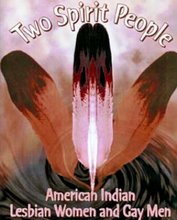(06-04) 12:34 PDT SAN FRANCISCO -- The California Supreme Court refused today to put its ruling allowing same-sex marriages on hold until the issue goes before state voters in November, clearing the way for gay and lesbian weddings to begin June 17.
The justices' unanimous vote to deny a stay sought by two conservative organizations will allow thousands of same-sex couples, from California and other states, to marry before the Nov. 4 vote on a state constitutional amendment that would overturn the ruling. If the amendment passes, the court will have to decide whether those marriage are valid.
In a separate vote today, the court denied reconsideration of its 4-3 decision May 15 that struck down the law limiting marriage to opposite-sex couples. That law was passed by the Legislature in 1977 and reaffirmed by the voters in a 2000 ballot measure.
The vote on the rehearing was also 4-3, with Chief Justice Ronald George, author of last month's ruling, joined by Justices Joyce Kennard, Kathryn Mickle Werdegar and Carlos Moreno in reaffirming the decision. Justices Marvin Baxter, Ming Chin and Carol Corrigan, who dissented from the ruling, voted for reconsideration.
The court's action could affect the November vote. In Massachusetts, the only other state to legalize same-sex marriages, opinion polls showed public acceptance of those marriages increasing over time as the previously prohibited unions became more commonplace.
"People will see their friends, neighbors and co-workers engaging in this very cherished ritual, and I believe it will continue to push the California voting public in the direction of assuring that the Constitution does not treat people differently," said Kate Kendell, executive director of the National Center for Lesbian Rights, which represented same-sex couples who file suit challenging the marriage law.
Mathew Staver, legal director of Liberty Counsel and lawyer for the Campaign for California Families, who argued in support of the ban on same-sex marriage, said the court's action today "reveals the political agenda of a handful of judges."
"I don't believe at the end of the day the people will allow four judges to rewrite marriage," Staver said. "If any same-sex marriage licenses are issued before November, the passage of the constitutional amendment will make them invalid and invisible."
Some legal analysts have maintained, however, that couples who marry in reliance on the court's decision will obtain rights that the voters cannot revoke.
Read more:
Wednesday, June 4, 2008
Tuesday, June 3, 2008
AJC.com: Says Nunn: It might be time to take another look at ‘don’t ask, don’t tell’
Tuesday, June 3, 2008, 02:28 PM
The Atlanta Journal-Constitution
Former Georgia senator Sam Nunn, who helped push through the 1993 “don’t ask, don’t tell” law that established the terms under which gays and lesbians could serve in the U.S. military, said Tuesday that it’s time to review the policy.
“I think [when] 15 years go by on any personnel policy, it’s appropriate to take another look at it — see how it’s working, ask the hard questions, hear from the military. Start with a Pentagon study,” Nunn said.
The former chairman of the Senate Armed Services wouldn’t say whether he personally supported putting an end to the policy.
Nunn’s comments followed a seminar in Atlanta on national service, after which reporters also asked him about the chances that Democratic presidential candidate Barack Obama might choose him as his running mate.
Nunn, who retired from the U.S. Senate in 1996, gave the same answer he had last month. “I think it’s highly improbable that I would be invited to be on the ticket, and I think it’s also highly improbable that I would be going back into government,” he said.
During the seminar on national service, Nunn made several references to Charles Moskos, a military sociologist who has advocated a return to military service for young people. Moskos, who died of cancer on Saturday, also participated in the formulation of the 1993 policy.
Read more:
The Atlanta Journal-Constitution
Former Georgia senator Sam Nunn, who helped push through the 1993 “don’t ask, don’t tell” law that established the terms under which gays and lesbians could serve in the U.S. military, said Tuesday that it’s time to review the policy.
“I think [when] 15 years go by on any personnel policy, it’s appropriate to take another look at it — see how it’s working, ask the hard questions, hear from the military. Start with a Pentagon study,” Nunn said.
The former chairman of the Senate Armed Services wouldn’t say whether he personally supported putting an end to the policy.
Nunn’s comments followed a seminar in Atlanta on national service, after which reporters also asked him about the chances that Democratic presidential candidate Barack Obama might choose him as his running mate.
Nunn, who retired from the U.S. Senate in 1996, gave the same answer he had last month. “I think it’s highly improbable that I would be invited to be on the ticket, and I think it’s also highly improbable that I would be going back into government,” he said.
During the seminar on national service, Nunn made several references to Charles Moskos, a military sociologist who has advocated a return to military service for young people. Moskos, who died of cancer on Saturday, also participated in the formulation of the 1993 policy.
Read more:
Bloomberg.com: Gay-Marriage Opponents Divorced From Reality:
Albert R. Hunt
Commentary by Albert R. Hunt
June 2 (Bloomberg) -- Desperate times, it is said, call for drastic measures.
In the U.S., the Republican Party is certainly desperate; it's in fundamentally worse shape in 2008 than in any election since Watergate. It's not surprising, therefore, that some conservatives want to capitalize on the recent ruling by the California Supreme Court overturning a ban on gay marriage to galvanize voters in the national elections.
The court decision will deliver a generation of children ``straight into the arms of the homosexual activist community,'' warns James Dobson, the Christian evangelical leader. Dobson is calling on citizens in California and elsewhere to mount a protest.
That dog, as they say in the American South, won't hunt this time. The gay-marriage issue, seized on by President George W. Bush's former political guru, Karl Rove, may have been moderately helpful to Republicans in 2004; it won't distract voters from other concerns -- like the economy, health care and the war in Iraq -- in 2008.
Presumptive Republican presidential nominee John McCain seems to have little interest in trying to take advantage of the ruling; he opposes gay marriage, yet has no inclination to demagogue the issue and knows this is a big-stakes, big-issues election, not one to focus on peripheral matters.
He also knows it's a long-term loser for Republicans. One reason the party's fundamentals are so bad in this election is the huge shift of younger people -- those between 18 and 29 -- from being swing voters to overwhelmingly Democratic; they're also turning out to vote in higher numbers. They are driven by concern about the economy and the war, as well as by revulsion over what they see as Republican intolerance.
Changing Public Opinion
National surveys by groups such as the Pew Research Center indicate that a growing number of voters support gay marriage. A Field Poll last week showed that California voters, by a margin of 51 percent to 42 percent, favor it, while 68 percent of young people feel that way.
Unlike in 2004, the issue can't be easily painted in partisan strokes. California's Republican governor, Arnold Schwarzenegger, opposes any effort to overturn the 4-3 decision of the Republican-dominated state Supreme Court, which consists of only one Democrat.
Eroding Argument
And the arguments against gay marriage are eroding. While critics say it destroys the institution of marriage, there's no evidence of that. Massachusetts sanctioned gay marriages four years ago, and there have been no reported incidents of straight couples splitting because of it; indeed, the initial furor has died down as people realize this doesn't threaten anyone.
Far more insidious is the 50 percent divorce rate in the U.S. and that a third of all children are born to a single mother; that's three times the rate of four decades ago.
Read more:
Commentary by Albert R. Hunt
June 2 (Bloomberg) -- Desperate times, it is said, call for drastic measures.
In the U.S., the Republican Party is certainly desperate; it's in fundamentally worse shape in 2008 than in any election since Watergate. It's not surprising, therefore, that some conservatives want to capitalize on the recent ruling by the California Supreme Court overturning a ban on gay marriage to galvanize voters in the national elections.
The court decision will deliver a generation of children ``straight into the arms of the homosexual activist community,'' warns James Dobson, the Christian evangelical leader. Dobson is calling on citizens in California and elsewhere to mount a protest.
That dog, as they say in the American South, won't hunt this time. The gay-marriage issue, seized on by President George W. Bush's former political guru, Karl Rove, may have been moderately helpful to Republicans in 2004; it won't distract voters from other concerns -- like the economy, health care and the war in Iraq -- in 2008.
Presumptive Republican presidential nominee John McCain seems to have little interest in trying to take advantage of the ruling; he opposes gay marriage, yet has no inclination to demagogue the issue and knows this is a big-stakes, big-issues election, not one to focus on peripheral matters.
He also knows it's a long-term loser for Republicans. One reason the party's fundamentals are so bad in this election is the huge shift of younger people -- those between 18 and 29 -- from being swing voters to overwhelmingly Democratic; they're also turning out to vote in higher numbers. They are driven by concern about the economy and the war, as well as by revulsion over what they see as Republican intolerance.
Changing Public Opinion
National surveys by groups such as the Pew Research Center indicate that a growing number of voters support gay marriage. A Field Poll last week showed that California voters, by a margin of 51 percent to 42 percent, favor it, while 68 percent of young people feel that way.
Unlike in 2004, the issue can't be easily painted in partisan strokes. California's Republican governor, Arnold Schwarzenegger, opposes any effort to overturn the 4-3 decision of the Republican-dominated state Supreme Court, which consists of only one Democrat.
Eroding Argument
And the arguments against gay marriage are eroding. While critics say it destroys the institution of marriage, there's no evidence of that. Massachusetts sanctioned gay marriages four years ago, and there have been no reported incidents of straight couples splitting because of it; indeed, the initial furor has died down as people realize this doesn't threaten anyone.
Far more insidious is the 50 percent divorce rate in the U.S. and that a third of all children are born to a single mother; that's three times the rate of four decades ago.
Read more:
Page One Q: McCain supporters cheer anti-gay message
Appearing at a campaign rally in Tennessee, John McCain was met with sustained cheers after stating that he believes "in the sanctity and unique status of marriage between man and woman."
As the cheers began, McCain added "That's what I believe, that's what I support, and that's what I will fight for."
During the ongoing cheers, McCain thanked the audience twice for their response.
In 2004, during the debate over the Federal Marriage Amendment, McCain told CNN that "The constitutional amendment we're debating today strikes me as antithetical in every way to the core philosophy of Republicans, it usurps from the states a fundamental authority they have always possessed and imposes a federal remedy for a problem that most states do not believe confronts them."
McCain split with his party and voted against the amendment in both 2004 and 2006.
Although often reported as supporting civil unions as an alternative to marriage, Mccain has supported state constitutional amendments banning both marriage equality and civil unions.
See video:
As the cheers began, McCain added "That's what I believe, that's what I support, and that's what I will fight for."
During the ongoing cheers, McCain thanked the audience twice for their response.
In 2004, during the debate over the Federal Marriage Amendment, McCain told CNN that "The constitutional amendment we're debating today strikes me as antithetical in every way to the core philosophy of Republicans, it usurps from the states a fundamental authority they have always possessed and imposes a federal remedy for a problem that most states do not believe confronts them."
McCain split with his party and voted against the amendment in both 2004 and 2006.
Although often reported as supporting civil unions as an alternative to marriage, Mccain has supported state constitutional amendments banning both marriage equality and civil unions.
See video:
Monday, June 2, 2008
Deb Price: Pro-privacy court ruling keeps giving for gays
Five years ago, the U.S. Supreme Court did something that's hard for anyone: It admitted it had been wrong.
That remarkable admission -- offered 17 years after the colossal legal error -- came in a case challenging whether Texas could punish those of us who're gay for having consensual sex in the privacy of our own home.
Justice Anthony Kennedy, writing for the majority in striking down all remaining state anti-sodomy laws, explained that the rights of liberty and privacy were at stake--and that they extend to gay Americans.
The gay men Texas had wrongly prosecuted "are entitled to respect for their private lives," Kennedy wrote, and "the state cannot demean their existence or control their destiny by making their private sexual conduct a crime."
Eloquently, Kennedy concluded that the authors of the Constitution's grand but intentionally vague promises "knew times can blind us to certain truths and later generations can see that laws once thought necessary and proper in fact serve only to oppress. As the Constitution endures, persons in every generation can invoke its principles in their own search for greater freedom."
Now, looking back at gays' breathtaking legal, political and cultural progress during the past five years, it's clear that a huge amount of the credit belongs to the Lawrence v. Texas decision.
We can see it cited by federal and state judges in rulings respecting gays as parents, soldiers and couples wanting to marry. We can see its influence in state legislatures' leaps forward. And we can feel the respectful tone it set in the most basic human contacts -- the neighborly wave or helping hand.
Most immediately, the decision erased the aura of criminality that surrounded gays even in states without sodomy laws.
Today, more heterosexuals than ever before understand gay people have a right to full, rich private lives and that, as Kennedy gently instructed, to see gay relationships just in terms of sex is demeaning, "just as it would demean a married couple were it to be said marriage is simply about the right to have sexual intercourse.... When sexuality finds overt expression in intimate conduct with another person, the conduct can be but one element in a personal bond that is more enduring."
Expanding the reach of this golden ruling is the joyful task ahead for this and future generations of Americans.
Reach Deb Price at (202) 662-8736 or dprice@detnews.com.
More Deb Price:
That remarkable admission -- offered 17 years after the colossal legal error -- came in a case challenging whether Texas could punish those of us who're gay for having consensual sex in the privacy of our own home.
Justice Anthony Kennedy, writing for the majority in striking down all remaining state anti-sodomy laws, explained that the rights of liberty and privacy were at stake--and that they extend to gay Americans.
The gay men Texas had wrongly prosecuted "are entitled to respect for their private lives," Kennedy wrote, and "the state cannot demean their existence or control their destiny by making their private sexual conduct a crime."
Eloquently, Kennedy concluded that the authors of the Constitution's grand but intentionally vague promises "knew times can blind us to certain truths and later generations can see that laws once thought necessary and proper in fact serve only to oppress. As the Constitution endures, persons in every generation can invoke its principles in their own search for greater freedom."
Now, looking back at gays' breathtaking legal, political and cultural progress during the past five years, it's clear that a huge amount of the credit belongs to the Lawrence v. Texas decision.
We can see it cited by federal and state judges in rulings respecting gays as parents, soldiers and couples wanting to marry. We can see its influence in state legislatures' leaps forward. And we can feel the respectful tone it set in the most basic human contacts -- the neighborly wave or helping hand.
Most immediately, the decision erased the aura of criminality that surrounded gays even in states without sodomy laws.
Today, more heterosexuals than ever before understand gay people have a right to full, rich private lives and that, as Kennedy gently instructed, to see gay relationships just in terms of sex is demeaning, "just as it would demean a married couple were it to be said marriage is simply about the right to have sexual intercourse.... When sexuality finds overt expression in intimate conduct with another person, the conduct can be but one element in a personal bond that is more enduring."
Expanding the reach of this golden ruling is the joyful task ahead for this and future generations of Americans.
Reach Deb Price at (202) 662-8736 or dprice@detnews.com.
More Deb Price:
Gotham Gazette: Protecting Incarcerated Gay and Lesbian Youth
Young New Yorkers who are defined by themselves or others as LGBTQ - lesbian, gay, bisexual, transgender or questioning their identity - are often at risk for mental, emotional and physical harm in school, at home, and in social and employment situations. They may experience discrimination, harassment, bullying and violence because of their sexuality, sexual preference and personal style. The risks these teens face in state-run residences, including correctional facilities, can be particularly daunting and dangerous.
Now the New York State Office of Children and Family Services has amended its policies to add gender identity, gender expression and sexual orientation to the characteristics protected from discrimination i.e., race, creed, color, age, sex, national origin, religion, marital status, mental or physical disability. The policy is designed to protect youth from discrimination or mistreatment in all residential settings, including jails, prisons and juvenile detention centers.
"All adolescents experience developmental and social challenges," the policy statement said. "However, LGBTQ youth frequently face additional pressures based on their gender identity or sexual orientation."
As a result, the policy states, "The majority of LGBTQ youth report alcohol and drug use as common mechanisms for coping with feelings of severe isolation," additional and typical risks, which presumably must now be addressed."
What the Policy Does:
Read more:
Now the New York State Office of Children and Family Services has amended its policies to add gender identity, gender expression and sexual orientation to the characteristics protected from discrimination i.e., race, creed, color, age, sex, national origin, religion, marital status, mental or physical disability. The policy is designed to protect youth from discrimination or mistreatment in all residential settings, including jails, prisons and juvenile detention centers.
"All adolescents experience developmental and social challenges," the policy statement said. "However, LGBTQ youth frequently face additional pressures based on their gender identity or sexual orientation."
As a result, the policy states, "The majority of LGBTQ youth report alcohol and drug use as common mechanisms for coping with feelings of severe isolation," additional and typical risks, which presumably must now be addressed."
What the Policy Does:
Read more:
Los Angeles Times: Gay marriage may be a gift to California's economy
Business is up for hotels, bakers and photographers as same-sex couples prepare to wed.
By Alana Semuels, Los Angeles Times Staff Writer June 2, 2008
Forget economic stimulus checks. Same-sex marriages may give California just the financial boost it needs.Wedding planners, bakers and hotels began booking more business almost immediately after the state Supreme Court's May 15 decision overturning a ban on gay marriage. Citing pent-up demand, one UCLA study projects that same-sex unions could provide a $370-million shot in the arm to the state economy over the next three years.
"Being in West Hollywood, we've been inundated," said Tom Rosa, owner of the Cake and Art bakery on Santa Monica Boulevard. "After the ruling, the phone really picked up."Rosa said couples who had waited for decades to legally marry were splurging on 5-foot-tall confections shaped like carousels and cakes featuring handcrafted birds of paradise.
Mike Standifer and Marc Hammer were already planning a commitment ceremony for October, but when the court ruling came out, they decided to throw an even bigger bash and get married.They plan on spending about $25,000, which includes renovations on their Hollywood home so they can have the party in their backyard. The new price tag includes rings, their suits and those of their wedding party, and the cost of flying in Standifer's priest from Tennessee -- all costs they wouldn't have incurred if they were just having a party.
"The wedding dynamic in the last two weeks changed everything," Standifer said. The wedding businesses he's worked with so far seem thrilled. "I think it's because the economy's not so great, but the vendors have been treating us like royalty," he said.
By some estimates, weddings and commitment ceremonies for same-sex couples generate $1 billion a year in revenue.PlanetOut, a media and entertainment company that conducts surveys about gay and lesbian consumers, says gay consumers earn 20% more than their straight counterparts, on average, and spend about 10% more on nuptials.
Read more:
By Alana Semuels, Los Angeles Times Staff Writer June 2, 2008
Forget economic stimulus checks. Same-sex marriages may give California just the financial boost it needs.Wedding planners, bakers and hotels began booking more business almost immediately after the state Supreme Court's May 15 decision overturning a ban on gay marriage. Citing pent-up demand, one UCLA study projects that same-sex unions could provide a $370-million shot in the arm to the state economy over the next three years.
"Being in West Hollywood, we've been inundated," said Tom Rosa, owner of the Cake and Art bakery on Santa Monica Boulevard. "After the ruling, the phone really picked up."Rosa said couples who had waited for decades to legally marry were splurging on 5-foot-tall confections shaped like carousels and cakes featuring handcrafted birds of paradise.
Mike Standifer and Marc Hammer were already planning a commitment ceremony for October, but when the court ruling came out, they decided to throw an even bigger bash and get married.They plan on spending about $25,000, which includes renovations on their Hollywood home so they can have the party in their backyard. The new price tag includes rings, their suits and those of their wedding party, and the cost of flying in Standifer's priest from Tennessee -- all costs they wouldn't have incurred if they were just having a party.
"The wedding dynamic in the last two weeks changed everything," Standifer said. The wedding businesses he's worked with so far seem thrilled. "I think it's because the economy's not so great, but the vendors have been treating us like royalty," he said.
By some estimates, weddings and commitment ceremonies for same-sex couples generate $1 billion a year in revenue.PlanetOut, a media and entertainment company that conducts surveys about gay and lesbian consumers, says gay consumers earn 20% more than their straight counterparts, on average, and spend about 10% more on nuptials.
Read more:
Subscribe to:
Comments (Atom)














